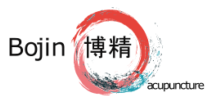
What I forget to mention in the last part – treatment method, is Scalp Acupuncture (or Brain acupuncture). Scalp acupuncture treatments is focused on neurological and mental disorder patients: Autism, Depression, Anxiety, Stroke and Post-stroke recovery, Dementia, Alzheimer’s,Parkinson disease PD, Motor Neuron Disease MND, Brain tumors, Chemotherapy-induced neuropathy, etc. I learned scalp acupuncture in 2019 from its founder Dr. Jiao Shun Fa and refreshed my knowledge during 2025 with Dr. Wang Tianjun from London. During last couple of years, I have successfully used scalp acupuncture, combined with body acupuncture, treating patients with above-mentioned disorders. Many practical cases and successful stories.
3. Strengths:
- Holistic: We treat the whole person, not just the symptoms.
- Personalized: Treatment is highly individualized.
- Minimal Side Effects: When practiced by a qualified practitioner, herbs and acupuncture have very few side effects compared to pharmaceuticals.
- Preventative: Focuses on restoring balance to prevent future issues.
4. Limitations:
- Less Standardized: Diagnosis is subjective and depends on the practitioner’s skill.
- Evidence Challenges: While growing, the evidence base from Western scientific standards can be more difficult to establish due to the highly personalized nature of treatment.
- Slower for Acute Cases: May take longer to show effects than medication for severe, debilitating symptoms.
| Aspect | Western Medicine | Traditional Chinese Medicine (TCM) |
|---|---|---|
| Core Philosophy | Biochemical, symptom-focused, targeted | Energetic (Qi), holistic, balance-focused |
| View of Condition | A disorder to be eliminated | An imbalance to be harmonized |
| Diagnosis | DSM-5 criteria, symptom clusters, lab tests | Tongue, pulse, questioning to identify patterns |
| Primary Tools | Pharmaceuticals, psychotherapy | Acupuncture, herbal formulas, diet, Qi Gong |
| Approach | Standardized protocols | Highly personalized |
| Goal | Eliminate or manage symptoms | Restore balance and flow of Qi |
| Time to Effect | Can be rapid (especially medication) | Often more gradual and cumulative |
Generally speaking TCM can be very helpful in the treatment of stress, depression and anxiety and is therefore a better alternative option.
Integrative Medicine is the growing trend in future to meet the needs of people. The most modern and effective approach often combines the best of both worlds. This is known as Integrative Medicine.
Example 1:
A patient takes an SSRI (e.g., Sertraline/Zoloft, Escitalopram/Lexapro) to manage severe acute symptoms while also receiving acupuncture to address the root imbalance and potentially reduce the required dosage of the medication.
Example 2:
A patient in psychotherapy (Western) for anxiety also practices Qi Gong (TCM) to improve mindfulness and somatic regulation.
Conclusion:
Western medicine excels at acute crisis management and providing a strong, evidence-based framework for understanding mental health conditions. TCM offers a holistic, personalized method that seeks to treat the root cause of imbalance and promotes long-term wellness without significant side effects.
The choice isn’t necessarily “either/or.” For many people, a thoughtful integration of both systems, under professional guidance, provides the most comprehensive path to managing stress, anxiety, and depression.
Reference:
- Chan YY. The benefit of combined acupuncture and antidepressant medication for depression: A systematic review and meta-analysis. J Affect Disord. 2015 May 1;176:106-17.
- Spackman E. Cost-effectiveness analysis of acupuncture, counselling and usual care in treating patients with depression: the results of the ACUDep trial. PLoS One. 2014 Nov 26;9(11):e113726.
Want to read the last one ? click here.

